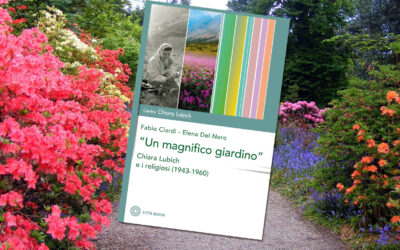This Word of Life is taken from a psalm that sings about God’s decisive and powerful intervention. He is a God who frees his people from their exile in Babylon and who continues to intervene throughout their history, every time he sees them downtrodden, discouraged, tempted by evil.
This is the history of each one of us, condensed in a striking image. On the one hand, there are the uncertainty and the trepidation of the farmer who entrusts his seeds to the earth but worries: Will this season be a good one? Will my wheat grow? On the other hand, there are the joy of the harvest and the long-awaited fruits.
«Those who sow in tears will reap with cries of joy»
When we think of our life, Chiara Lubich once wrote, we often imagine it as all in harmony, as “a series of days that we propose to make each more perfect than the other, with a job well done, and study, and rest, and time spent with family, with gatherings and meetings, sports and recreation, all carried out in order and in peace. … There is always a hope in the human heart that things will go this way and this way only.
“In reality, our holy journey turns out differently, because God wants it different. And he himself takes care of getting other factors introduced into the program, wished or permitted by him so that our existence will acquire true meaning and arrive to the end for which it was created. Here belong the physical and spiritual pains, here the sicknesses, here the thousands and thousands of sufferings which speak more of death than life.
“Why? Because maybe God wants death? No, on the contrary, God loves life, but such a full life, so fertile as we could never have imagined, however great our tension toward the good, the positive, and to peace.”
And here we have the image of the farmer who sows the seed that is destined to die, almost as a sign of our effort and suffering, and the image of the one who harvests, who gathers the fruit of the grain of wheat which blossomed from that death: “Unless a grain of wheat falls to the ground and dies, it remains just a grain of wheat; but if it dies, it produces much fruit” (Jn 12:24).
Chiara says that “God wills us to experience a kind of death in the course of our life – or many kinds of deaths sometimes; that is because for him what the holy journey means is the producing of fruit, of works worthy of him and not just of us simple humans. This is for him the meaning of our life, a life rich, full, superabundant, a life that can be a reflection of his.”
«Those who sow in tears will reap with cries of joy»
How can we live this Word of Life? Chiara again suggests how, as she guides us in living out the Word of God: we need to “value pain, great or small, consider it important… particularly value hard work, and the sacrifice entailed by love of neighbor since it is our typical duty” (Journey, p.101). It is suffering that generates life!
And we should do this without ever giving up, even when we do not see the results of our efforts, fully aware that “one sows and another reaps” (Jn 4:37). What does the future hold for the children we are trying so hard to educate well? Who will notice the effect my work has had in the social and political arena? “Let us not grow tired of doing good, for in due time we shall reap our harvest” (Gal 6:9). The fruits will come, perhaps much later, perhaps somewhere else, but they will come.
A hope, a certainty, a sure goal is in front of us in our life’s journey. The difficulties, the trials, the adversities, which at times can wear us down, are necessary for the passage that open us up to the beatitudes and to joy.
“Let’s go forward,” Chiara says, “looking beyond every pain. Keep going, rather than stop at that dilemma, that grief, that sickness, that trial. Let us look forward to the harvest that we will receive” (Journey, p. 84).
«Those who sow in tears will reap with cries of joy»
Patricia, a 22-year-old law student in Paraguay, had been the assistant to the director of her department for some time. “Right from the beginning,” she recalled, “I always tried to improve in my work and to nurture relationships with my colleagues that would make each one of them feel valued.”
Often it was a matter of going against the current in order to defend her own principles, cost what it may. One time, she said, “An important person in my department, one who enjoyed certain privileges, clearly was being dishonest in his actions. I had the duty to tell him so.”
Patricia acted on her convictions, but in doing so she lost her job. “I suffered terribly, but I was also peaceful about it, because I knew that I had done the right thing.” She did not despair because she was deeply aware of having a Father who can do all things and who loved her without measure.
Although it seemed almost impossible, given the economic conditions in Paraguay, that very evening she received two job offers. And then the new job she took turned out to be even better than her previous one and more directly connected with her field of studies.
By Fabio Ciardi and Gabriella Fallacara




0 Comments